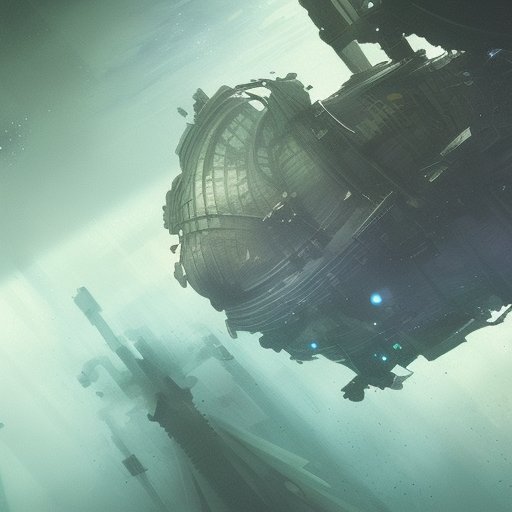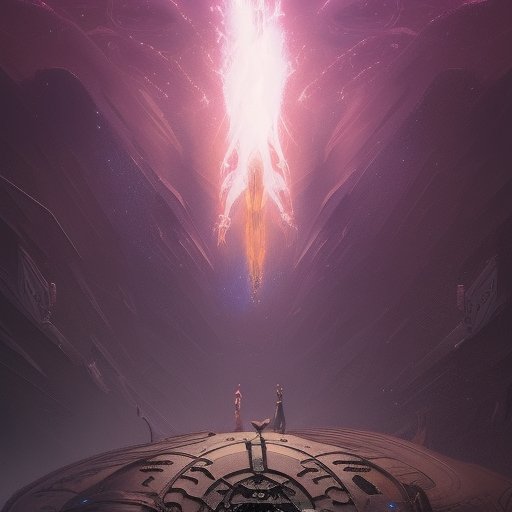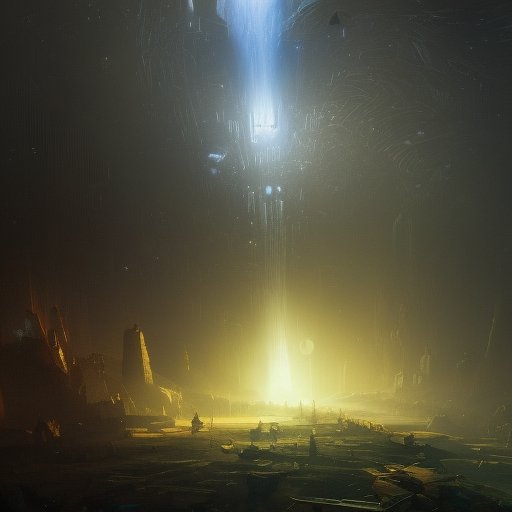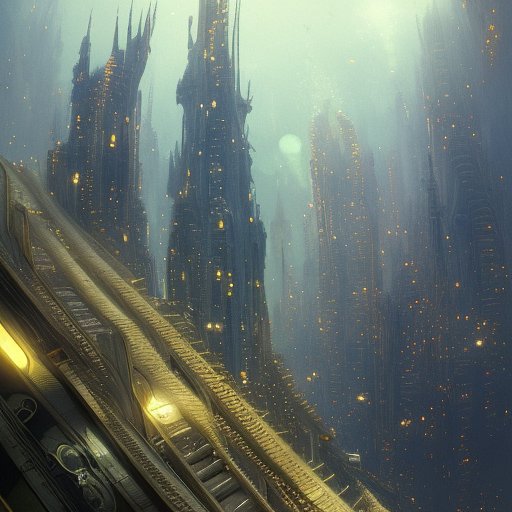
The question of whether society or humanity is more important has plagued science fiction for decades. In this article, we explore the tug-of-war between these two powerful forces in the world of the future. From the way technology impacts our lives to the role of personal freedom, we delve into the pros and cons of each side. But the danger of choosing one over the other looms large. Can we find a way to balance the needs and desires of both society and humanity? Join us on this journey to find out.
I. Introduction
Ladies and Gentlemen, Androids and Aliens, gather round and lend me your ear-holes! The tides of change are upon us, and the forces of society and humanity are battling it out in a futuristic showdown!

Our society has always been defined by our human nature, our inventions, our unity, and our ability to adapt to ever-changing circumstances. The intermingling of diverse human cultures and the incredible technological advancements have fueled our species to heights we never thought possible.
However, in this age of automation and computerization, our society has taken on a life of its own. Our collective thoughts, actions, and desires have begun to overshadow those of the individual. As we integrate more and more with machines, it seems society is emerging as an autonomous entity that requires humanity’s conformity.
And so, we find ourselves at a crossroads – do we relinquish our personal freedom to the will of the society, or do we strike out on our own, placing our own individuality above all else? The debate rages on, and it is up to us to decide which side holds the future of our species.
In the following sections, we’ll examine the pros and cons of both society and humanity as the driving forces of our future. We’ll explore the dynamics of this natural tug-of-war, and examine the role that technology plays in the equation. By the end of this article, we’ll have discovered danger that lies in choosing one side over the other.
So buckle up, dear readers, because the ride is about to get wilder than a rocket propelled hovercraft through a gamma radiation storm! Get ready to explore the future, where society and humanity vie for dominance, and the fate of our species hangs in the balance.
II. The Pros and Cons of a Society-Driven Future
Society is the backbone of our species. It organizes us, satisfies our basic needs, and has allowed us to achieve feats we never dreamed possible. A society-driven future could create countless advantages, such as:

Firstly, a stronger infrastructure that can withstand the challenges of climate change and global disasters. With each passing year, these issues grow more pressing, and a society-driven future could hold the key to our survival.
Furthermore, a society that values cooperation above all else could lead to a world without conflict. War, crime, and corruption could become vestiges of the past, as we work together toward our common goals.
Moreover, a society that prioritizes education and social welfare could provide everyone with the resources they need to succeed. No one would be left behind or left to suffer in poverty, leaving room for innovation and creativity to flourish.
On the other hand, a society-driven future could stifle our individuality and personal freedom. To maintain social cohesion, conformity is mandatory. We may find ourselves living in a world where our desires and dreams are suppressed, and our abilities for self-expression are limited.
Additionally, a society that values conformity above all else could lead to a world stripped of all creativity and diversity. Without the unique perspectives of individuals, our society could become homogenous and dull, lacking any semblance of originality.
Finally, a society-driven future could foster a sense of apathy as we grow more and more reliant on the interconnected systems that keep our society running. We may become complacent, lacking the drive to push ourselves to our fullest potential.
III. The Pros and Cons of a Human-Driven Future
Ah, the human spirit! Strong-willed, fiercely independent, and always ready to forge our own path. Many would argue that a human-driven future is the only way to go. After all, relying on society to dictate our every move flies in the face of everything we stand for. So, what are the pros and cons of such a path?

On the one hand, a human-driven future would prioritize the individual. No longer would society shackle us with its myriad of rules and regulations. We’d be free to chart our own course, unencumbered by the expectations of others. That means innovation, exploration, and creative expression would all flourish. And, of course, we’d still have the ability to work together when it suits us, choosing our own alliances and partnerships.
On the other hand, such freedom could easily lead to chaos. With everyone looking out for themselves, conflict would increase, potentially resulting in war or even the breakdown of society itself. Additionally, individuals may not always make the best choices for themselves, leading to poor decision-making and a decrease in overall quality of life.
Despite these potential drawbacks, some would argue that it’s worth the risk. Our human nature, after all, demands that we be allowed to choose our own destiny. That requires an autonomous future that is driven, first and foremost, by us.
IV. The Natural Tug-of-War Between Society and Humanity
It’s a battle that has been raging since the dawn of civilization: society versus humanity. On one side, we have the forces of conformity and order, while on the other, we have the forces of individuality and rebellion. It’s a natural tug-of-war that defines the essence of our species, and it shows no signs of stopping.

As we continue to press further into the future, the tension between society and humanity becomes more pronounced. We see it in every aspect of our lives, from the political arena to the workplace to our very own homes. Society demands obedience and conformity, while humanity cries out for freedom and self-determination.
On one hand, society provides us with structure, security, and stability. It allows us to pool our resources and work toward a common goal, achieving greatness that is impossible for any individual to attain alone. Society is the glue that binds us together, forming a collective consciousness that is greater than the sum of its parts.
On the other hand, humanity represents the spirit of innovation, creativity, and self-expression. It allows us to explore the mysteries of the universe and push the boundaries of what is possible. Humanity is the raw energy that ignites our passions and fuels our dreams, carving out our own unique paths in this vibrant and ever-changing world.
The struggle between society and humanity is not a new one, nor is it likely to ever be fully resolved. It is an ever-present force in our lives, shaping our societies, our cultures, and our very identities. As we move forward into the uncharted territory of the future, we must strive to find a balance between the forces that drive us, lest we be consumed by the very struggle that defines us.
V. How Technology Factors into the Equation
Technology plays a pivotal role in the debate between society and humanity. On the one hand, it has brought about a level of connectivity and convenience never before seen in human history. We can now communicate with each other instantaneously across vast distances, access a near-infinite amount of information, and automate many of the mundane tasks that used to dominate our lives.

On the other hand, technology has also contributed to the rise of society as an autonomous entity, one that seeks to shape our behavior and desires. Algorithms and machine learning algorithms seek to examine our preferences and then direct us toward certain products or ideas. Meanwhile, the collection of data through our phones, computers, and other devices provides societal entities with a means to monitor our whereabouts and behavior.
What’s more, there’s no denying the fact that technology is changing the very fabric of our society. As we move toward automation and artificial intelligence, many jobs that were once performed by humans are now carried out by machines. This creates a fundamental shift in the balance between society and humanity, as the machines that drive society become more and more powerful.
But the influence of technology on the society vs. humanity debate is not all negative. By utilizing technology in a responsible manner, we can harness its power to benefit all people. For instance, advances in medicine and energy production can help us to overcome major societal and environmental obstacles.
Ultimately, our approach to technology will help to shape the future of our species. Will we use it to dominate and control each other or will we utilize it to expand our horizons and advance our civilization? Only time will tell.
VI. The Role of Personal Freedom in the Debate
Personal freedom is at the very heart of the debate between society and humanity. As we become more and more integrated with technology and automation, society is emerging as an autonomous entity that requires conformity, while humanity is left feeling like a forgotten afterthought. But where does personal freedom fit into this equation? Is it something that we should be willing to give up in order to serve the needs of society, or is it an intrinsic part of what makes us human?

At first glance, it may seem like society is the clear choice when it comes to sacrificing personal freedom. After all, in a society where everyone is working together towards a common goal, individuality may seem like a hindrance rather than an asset. But upon closer inspection, we begin to see just how much personal freedom matters.
Without personal freedom, we lose the very essence of what it means to be human. We lose the ability to make choices, to create our own narratives, and to chart our own course in life. And without those things, life becomes stagnant and dull, and our species loses its drive to continue evolving and growing.
But does that mean that personal freedom should always trump society? Not necessarily. The truth lies somewhere in the middle – we need to find a balance between serving the needs of the society and preserving the personal freedom of individual humans.
In order to achieve that balance, we need to be willing to engage in open and honest discussion about the role of personal freedom in the society of the future. We need to be willing to listen to all perspectives, and to work together to find a solution that benefits everyone, not just a select few.
In the end, personal freedom is a vital component of humanity, but it is not the only factor at play. We must seek out balance and compromise if we wish to create a society that truly serves the needs of all its members.
VII. The Danger of Choosing One Side Over the Other
Choosing one side over the other in the society versus humanity debate is a trap. One side might seem better, but it has its own flaws, and the other side might be worse than it looks. For example, giving up individuality for the sake of a perfect society might seem like a good idea, but it also means giving up the freedom to innovate, to think, to create, and to choose.

On the other hand, placing individuality above all else might give us the freedom to be whoever we want to be, but it also means that we have to bear the consequences of our actions alone. It also means that we live in a world where everyone is out for themselves, and where society crumbles under the weight of rampant selfishness.
The danger lies not in choosing one side or the other, but in not finding a balance. We must learn to strike that elusive equilibrium point where society and humanity coexist in harmony. To find it, we need to look beyond the extremes of one-sidedness and find common ground, where the needs of the individual meet the needs of the society.
It’s a tricky balance to maintain, one that requires wisdom, compassion, and a solid understanding of what makes us human. It’s a balance that we must constantly strive for, even when we’re tempted to take the easy road and give in to the extremes.
In the end, it’s up to us to decide which side we take, but we must remember that neither is perfect. There will be times when society must take precedence, and there will be times when individuality must take center stage. The key is to know when to choose one over the other, to find that balance, and keep the scales from tipping too far in either direction.
VIII. Conclusion
And so, we find ourselves at a critical juncture in our evolution, with the fate of our species hanging in the balance. The choice between society and humanity may seem like a black and white decision to some, but the reality is much murkier.

Society and humanity are not opposing forces, but rather two sides of the same coin. We must strive for balance between the two, to find a way to harness the power of society without sacrificing the individuality of humanity.
Our journey to this balance will be fraught with challenges, as we navigate the treacherous waters of a rapidly advancing technological landscape. But if we keep in mind the importance of personal freedom and the unique qualities that make humanity so special, we can chart a course towards a future that is both prosperous and fulfilling.
We must also remember that the tides of society are shaped by the collective behavior of individuals, and that we are not powerless in the face of this emerging force. By fostering a culture that values personal freedoms, creativity, and diversity, we can ensure that society remains a reflection of our collective humanity, rather than a subjugator of it.
In the end, it is up to us to decide the future of our species. Do we let society consume us, or do we preserve our distinctiveness as individuals? The answer lies somewhere in between, in a place where society and humanity can coexist and thrive together. And so, my fellow space cadets, let us embrace this challenge with courage and conviction, as we chart a course towards a future that is both harmonious and full of wonder.






